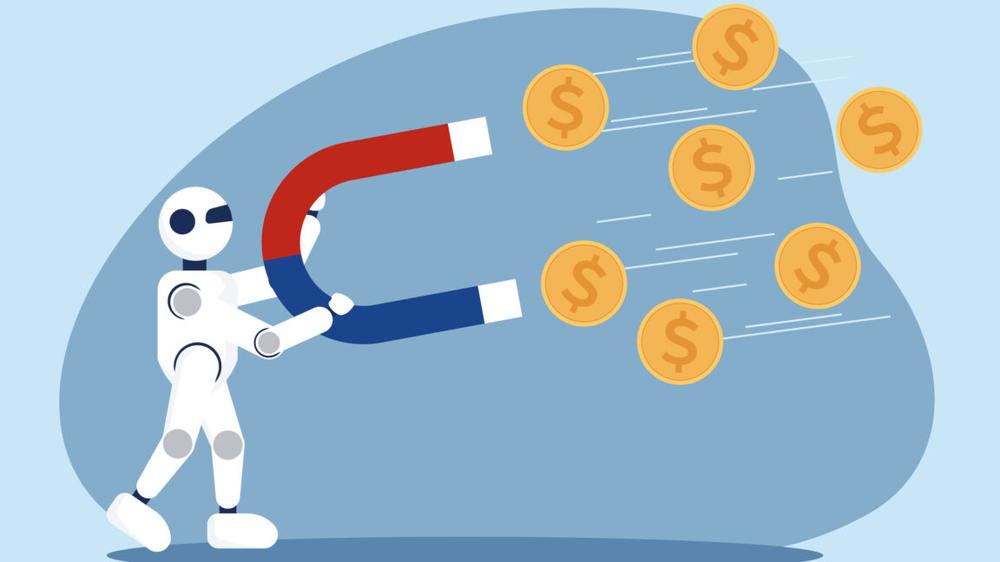One week after Delta announced it is expanding a test using artificial intelligence to charge different prices based on customers' personal data—which critics fear could end cheap flights forever—Democratic lawmakers have moved to ban what they consider predatory surveillance pricing.
In a press release, Reps. Greg Casar (D-Texas) and Rashida Tlaib (D-Mich.) announced the Stop AI Price Gouging and Wage Fixing Act. The law directly bans companies from using "surveillance-based" price or wage setting to increase their profit margins.
If passed, the law would allow anyone to sue companies found unfairly using AI, lawmakers explained in what's called a "one-sheet." That could mean charging customers higher prices—based on "how desperate a customer is for a product and the maximum amount a customer is willing to pay"—or paying employees lower wages—based on "their financial status, personal associations, and demographics."
Tlaib called companies using AI to "exploit" workers in "desperate" situations "appalling," with the one-sheet specifically shaming delivery services that lower drivers' wages based on their "pattern of taking orders" and health care companies that base nurses' pay on "an algorithmically-manipulated-bidding war, not the tasks they perform."
The lawmakers also called out Delta among companies whose AI pricing plans, advocacy groups warn, stand to worsen the US "affordability crisis" that currently sees many Americans struggling to afford basic items, like groceries. Delta has confirmed it plans to "set 20 percent of prices using AI by the end of the year," lawmakers noted. And other companies "engaging in surveillance-based price setting" include giants like Amazon and Kroger, as well as a ride-sharing app that has been "charging a customer more when their phone battery is low."
Public Citizen, a progressive consumer rights group that endorsed the bill, condemned the practice in the press release, urging Congress to pass the law and draw "a clear line in the sand: companies can offer discounts and fair wages—but not by spying on people."
"Surveillance-based price gouging and wage setting are exploitative practices that deepen inequality and strip consumers and workers of dignity," Public Citizen said.
AI pricing will cause “full-blown crisis”
Back in January, the Federal Trade Commission requested information from eight companies—including MasterCard, Revionics, Bloomreach, JPMorgan Chase, Task Software, PROS, Accenture, and McKinsey & Co—joining a "shadowy market" that provides AI pricing services. Those companies confirmed they've provided services to at least 250 companies "that sell goods or services ranging from grocery stores to apparel retailers," lawmakers noted.
That inquiry led the FTC to conclude that "widespread adoption of this practice may fundamentally upend how consumers buy products and how companies compete."
In the press release, the anti-monopoly watchdog, the American Economic Liberties Project, was counted among advocacy groups endorsing the Democrats' bill. Their senior legal counsel, Lee Hepner, pointed out that "grocery prices have risen 26 percent since the pandemic-era explosion of online shopping," and that's "dovetailing with new technology designed to squeeze every last penny from consumers."
Hepner pushed lawmakers to support the legislation banning AI surveillance pricing, suggesting that could help "restore fair, transparent, and predictable pricing." Otherwise, "there is no such thing as a good deal when every consumer is charged a different price," Hepner warned.
For consumers and workers who may not even realize they've been subjected to AI spying, the law offers paths through their state, the FTC, and the Equal Employment Opportunity Commission to sue. Any violations could force companies to either pay back the difference in any unfair transactions that AI systems recommended or $3,000—whichever is higher. And willful violations could triple damages owed.
"Giant corporations should not be allowed to jack up your prices or lower your wages using data they got spying on you," Casar said. "Whether you know it or not, you may already be getting ripped off by corporations using your personal data to charge you more. This problem is only going to get worse, and Congress should act before this becomes a full-blown crisis."
It's unclear if the Democrats can win enough support from Republicans to pass the bill. Perhaps notably, Republican FTC commissioners voted against releasing the report outlining potential concerns with AI surveillance pricing and wage setting.
In their dissent, commissioners Andrew Ferguson and Melissa Holyoak suggested the report was published prematurely, criticizing Biden's outgoing FTC for "nakedly" politicizing the agency and taking an "unprecedented" step in sharing preliminary summaries of findings.
However, they did agree that when the final report is ready, the "American public and Congress will surely value what the Commission ultimately learns and shares as to whether and how consumers’ private data may be used to affect their pocketbooks, especially as the future of our nation’s privacy laws is being considered."

 Grow a Garden dev confirms trading feature is coming to prevent scamming
Grow a Garden dev confirms trading feature is coming to prevent scamming